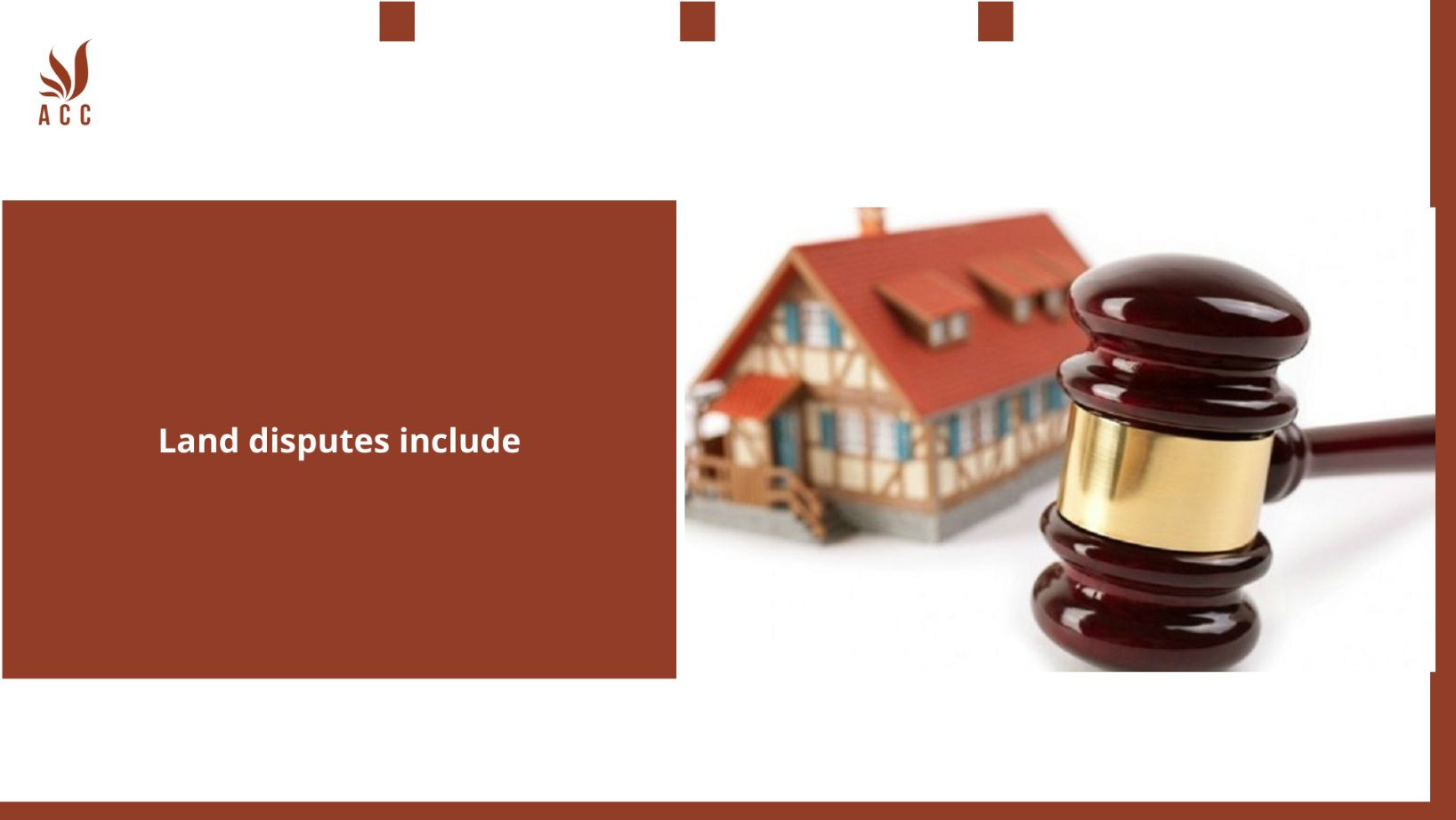Land disputes can encompass a wide range of issues and conflicts related to land ownership, use, and boundaries. Some common types of land disputes include:

1. Property Boundary Disputes:
These disputes arise when neighbors disagree about the exact location of their property boundaries. This can involve disagreements over fences, walls, or other physical markers.
2. Easement Disputes:
Easement disputes involve conflicts over the rights to use a specific portion of land, such as a shared driveway or a pathway across one's property.
3. Adverse Possession Claims:
In some cases, a person may claim ownership of another person's land through adverse possession, where they have openly and continuously used the land for a certain period and meet specific legal requirements.
4. Title Disputes:
Title disputes may arise when there are issues with property deeds or titles, such as competing claims to ownership or disputes over the validity of a deed.
5. Land Use Zoning Disputes:
These disputes occur when property owners and local governments disagree on the allowable uses and development of a piece of land based on zoning regulations.
6. Tenancy Disputes:
Disagreements between landlords and tenants can sometimes involve land use, lease terms, or property condition disputes.
7. Inheritance and Succession Disputes:
When a person passes away, conflicts over the distribution of inherited land can lead to disputes among heirs or beneficiaries.
Environmental and Land Conservation Disputes: Disagreements related to environmental regulations, conservation easements, or land development that affects natural habitats can also result in land disputes.
8. When using ACC Law Firm's land-related services, entrepreneurs will receive
When using ACC Law Firm's land-related services, entrepreneurs will receive expert advice and assistance in navigating various legal aspects of land ownership and transactions. This includes guidance in property acquisitions, leases, zoning regulations, land use planning, and any other land-related legal matters. ACC Law Firm's team of experienced attorneys will provide personalized support to entrepreneurs, ensuring compliance with applicable laws and regulations, protecting property rights, and optimizing the value of their land investments.
9. Q&A
Q1: What are common causes of land disputes?
A1: Common causes of land disputes can include boundary disagreements, unclear property titles, inheritance disputes, adverse possession, zoning or land use conflicts, and issues related to land encroachments or trespassing.
Q2: How can individuals prevent land disputes from arising?
A2: To prevent land disputes, individuals can take proactive measures such as conducting property surveys, maintaining clear property records and titles, communicating openly with neighbors, respecting property boundaries, and creating formal agreements regarding land use, inheritance, and property ownership.
Q3: What steps should someone take if they become involved in a land dispute?
A3: If someone becomes involved in a land dispute, they should consider the following steps:
Attempt amicable resolution through open communication and negotiation with the other party.
Consult with a local attorney who specializes in property or real estate law for legal guidance.
Explore alternative dispute resolution methods like mediation or arbitration.
If necessary, initiate legal action through the court system to protect property rights.
Q4: Are there specific legal authorities or government offices that handle land disputes?
A4: Land disputes can be resolved through various entities, depending on the jurisdiction and nature of the dispute. Local government authorities, land tribunals, courts, mediators, and arbitration services are among the potential authorities involved in resolving land disputes. The appropriate authority may vary based on the specific circumstances and the laws of the region.
Nội dung bài viết:






Bình luận